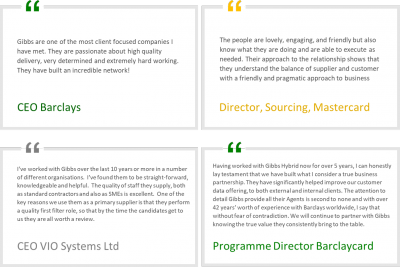Making Black Lives Matter, Matter
Lessons and Opportunities
So much has been said, shouted and written about this that I hesitate to weigh in. However, as a woman, a mother, and a business owner from an ethnic minority background, I believe I have something to add to the discussion.
The impetus for the current phase of BLM was the murder of George Floyd in the US, but there is anger in the UK too, where official figures show that police in England and Wales were three times more likely to arrest a black person than a white person and five times more likely to use force in 2018-19. The death of George Floyd was distressing and ignited a period of deep reflection for many. We must use data-based evidence to ground ourselves to the true meaning of the protests and the Black Lives Matter movement. I was hugely impressed by the data provided by Gyana.
- Since 2014, every month has seen more than 60 deaths at the hands of US police officers
- In the second half of 2019, there were only 11 days where no one died at the hands of the police
- The rate that US police in Utah kills people from the Black community is almost as high as the US murder rate
- Of all deaths at the hands of police officers, only 0.3% have been convicted
- When restricted to on-duty police officers, only 0.8% were ever charged
- Since 2015, only 9.1% of deaths have available body camera footage
- 92% of deaths are as a result of purely a gunshot wound
- Black people are killed by police in Utah at a rate more than 9x higher than the general population
- Adjusted for population, black people are killed by the Oklahoma City police at a rate more than 6x higher than the New Orleans police
- In cities where the murder rate is below 10, there is no correlation between the murder rate and the police homicide rate
The frustration here in the UK has engulfed controversial statues across the country, new immigration rules, the treatment of the Windrush Generation and even school lunches, which are essential to the well-being of poorer, minority children. These are all vital, if uncomfortable, issues, and I believe we must reach out and have the conversations, followed by substantive action.
I recall my first experience of racism and being called a “paki” at school at the age of 11; I was bewildered, not sure what that meant. And so it begun – the endless taunting of my skin colour, the exclusion from friendship groups, the mockery, the insults – but why? Because I was not a “white” girl? It never even crossed my mind that I was the only non-white girl in the school. So, if this did not cross my mind, then why did it cross the minds of others? And here we are in 2020 still fighting racism in so many ways, but the issues now feel so much deeper.
From the streets of Minneapolis to the Windrush Generation here in the UK, ethnic minorities have been discriminated against and often demeaned. Housing, jobs, education and a thousand ‘micro-aggressions’ have all played their part in this discrimination. Ethnic minorities tend to have a lower net worth, are heavily represented in low wage, low expectation jobs, have worse health outcomes and are crowded in dilapidated housing. In policing, as I mentioned above, arrests are heavily weighted against minorities, and black people are more than twice as likely to die in police custody. Even the Coronavirus gets in on the act – black Britons in England and Wales have been nearly twice as likely to die with the disease as white people.
Against all this backdrop, what can one person do? It can be overwhelming. At times like this, I think of the Chinese proverb, A journey of a thousand miles begins with a single step. Yes, there is no easy fix, but we all can use our influence, our business connections and our voice to make a small difference.
At Gibbs Hybrid, we have a positive employment policy, and we seek out underrepresented communities when we hire, either for contract opportunities, apprenticeships or full-time positions. We carry that responsibility to our purchasing, trying to use local suppliers rather than ‘big box’ outlets.
We work with world-class clients who strive to put diversity and inclusion at the heart of their procurement decisions, and I personally am involved with MSDUK, which brings together innovative and high-growth ethnic minority-owned businesses with global corporations.
I am passionate about working with organisations and companies to make a tangible difference. If you’re interested in joining me, let’s collaborate – email me at [email protected] to set up a suitable time for discussion.
So, to me, as a society, as individuals, we need to do better to demonstrate it. It’s not a ‘problem’ that minorities have to constantly explain to broader society: it’s an opportunity for us all to debate, strategise and come up with concrete steps to heal our fractured society and empower all of us to do better, be stronger and make a tangible difference.



